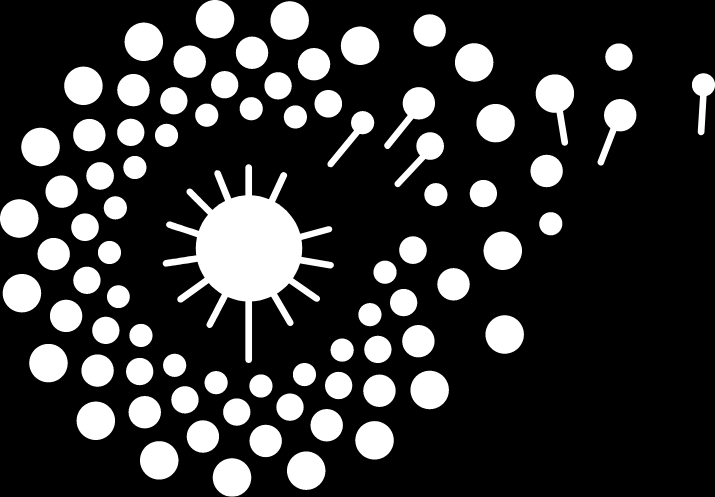Seeing That Frees by Rob Burbea
Chapter 10: Dependent Origination (1)
Introduction to Dependent Origination
Dependent Origination (paṭiccasamuppāda) is a fundamental concept in the Buddha's teaching, which Rob Burbea explores in "Seeing That Frees." This chapter introduces Dependent Origination at a preliminary level. The classic formula describes a twelve-fold chain that starts with ignorance (avijjā) and leads to a mass of suffering (dukkha). This chain includes concoctions (saṅkhārā), consciousness, mentality-materiality (nāmarūpa), the six sense spheres, contact, vedanā (feeling tones), craving, clinging, becoming (bhava), birth, and finally aging and death, with its associated suffering.
Understanding this chain explains how suffering arises and, more importantly, suggests ways to disrupt that chain, thus addressing dukkha. By dissecting our experiences through the lens of Dependent Origination, we gain insights into our own patterns of reaction and creation of suffering. We begin to see that our dread before a challenging event, such as a work presentation, is an instance of dukkha that comes about through these links construed through a web of personal narratives and ignorance of emptiness.
Engendering Dukkha
The dread felt before a stressful work event can be navigated by examining the chain of Dependent Origination. At the base is avijjā, which is an ignorance of both emptiness and dependent arising. It leads to saṅkhārā, experienced as anxiety-ridden expectations influenced by past criticisms. This builds the web of becoming, where the mind, shaped by clinging to these expectations, gropes for decisions in trying to control its fate.
The next steps may involve avoidance actions, such as calling in sick, to evade the feared situation (becoming and birth). Yet this seemingly relieving decision can quickly lead to self-judgment and a sense of inadequacy (aging and death), unraveling the brief construction of a relieved self. In essence, all these stages contribute to the complex entanglement of dukkha, reinforced by reinforcing feedback loops within the chain.
Sub-Loops and Connections
The chapter acknowledges that the description of Dependent Origination as a linear process is an oversimplification. In reality, any link in the chain can feed back into and influence any other, creating sub-loops and intensifying the cycle of dukkha. For example, past painful memories (saṅkhārā) may reinforce present self-views, which in turn further power said memories and ignorance (avijjā).
Furthermore, the chapter notes that painful sensations and distress appear not only at the chain's end but are present throughout the process, encapsulating the thoughts and reactive mind's grasping towards these thoughts. It highlights the mutuality between craving/materiality-mentality and the feedback loop, demonstrating the non-linearity of causality that exists in the traditional portrayal of Dependent Origination.
A Map for Relieving Dukkha
Importantly, the map of Dependent Origination also serves to decrypt the knots of dukkha, with non-linearity offering several entry points for deconstructing suffering. By recognizing the role of saṅkhārā and attending wisely to craving and vedanā, one can significantly alleviate the fabrication of suffering.
Understanding that saṅkhārā are empowered by avijjā can lead one to suspect the validity of perceptions and automatic reactions, thereby weakening the cycle of suffering. By attending with mindfulness to the arising of craving and the felt pressure or tension in the body or focusing on the experience of vedanā, the cycle of reactive papañca can be disrupted, lessening the constructed self and the associated dukkha.
Softening the View
The text presents various practice approaches for addressing dukkha from multiple angles. Addressing unhelpful perceptions during a presentation by incorporating mettā (loving-kindness) could result in viewing the audience as less threatening. The acknowledgment of shared mortality can also provide a relative perspective, softening the view with compassion and reducing the perceived threat, thereby lessening the creation of self and suffering.
Self and Phenomena: A Mutual Construction
Burbea emphasizes that the process of self-fabrication is interlinked with the fabrication of phenomena and that neither the sense of self nor the phenomenon can be upheld independently. They are co-constructed, and this mutual dependency holds significance for liberation.
The Need to Probe Deeper
The provisional understanding of Dependent Origination must be transcended to achieve deeper insight. The current discussion, while useful, assumes the inherent existence of various elements (such as time and vedanā) at its current level of understanding. However, truly probing Dependent Origination requires transcending these assumptions to uncover its ultimate freeing power which goes beyond the current explanation. The Buddha's teaching ultimately aims not at constructing views but at their deconstruction to unlock freedom. This insight lays the groundwork for exploring further depths in the teaching of dependent arising, which will unfold in more advanced practices.
The chapter concludes by acknowledging that while detailed explication is valuable, a deeper understanding of Dependent Origination is necessary to fortify the insight and deepen the practice. This understanding will evolve as the exploration of Dependent Origination continues throughout the book.

